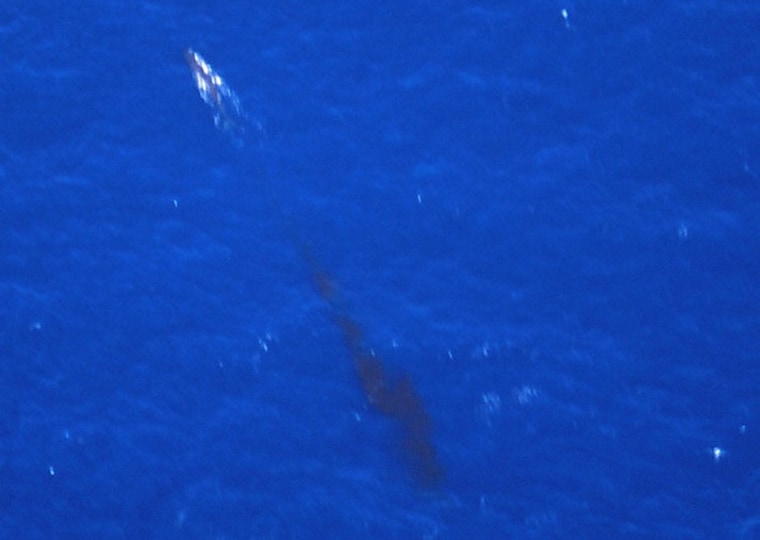Sperm whale waste isn't much to look at. It's a diarrhea-like substance with a few squid beaks floating around. But new research has found it removes carbon from the atmosphere, helping to offset greenhouse gases that have been tied to global warming.
Sperm whales in the Southern Ocean release 220,462 tons of carbon when they exhale carbon dioxide at the water's surface, but their poo stimulates the drawdown of 440,925 tons of carbon, according to the research, published in the latest Proceedings of the Royal Society B.
These ocean giants and certain other marine mammals may therefore be among the most environmentally beneficial animals on the planet.
"If Southern Ocean sperm whales were at their historic levels, meaning their population size before whaling, we would have an extra 2 million tons (2,204,623 tons) of carbon being removed from our atmosphere each and every year," lead author Trisha Lavery told Discovery News.
Lavery, a marine biologist at Flinders University of South Australia, and her colleagues explained how the cleaning process works.
It begins with sperm whales feeding on squid and fish, their favorite prey, deep in the ocean. The whales then return to the water's surface to relieve themselves.
"They do this because they shut down their non-crucial biological functions when they dive," Lavery said. "So it's only when they come to the surface to rest that they defecate."
Their waste comes out as a giant liquid plume (save for the undigested squid beaks) that showers over minute aquatic plant "seed stocks," which she said are "just floating around waiting for nutrients so they can use them to grow and reproduce." The whale poo provides these nutrients, functioning as a natural fertilizer.
The plants, known as phytoplankton, take up carbon from the ocean as they grow. Through the entire life and death cycle of these plants, the carbon then stays "trapped" for centuries to millennia.
Published estimates suggest that 12,000 sperm whales currently inhabit the Southern Ocean. Lavery and her team estimated the amount of prey consumed by each whale, along with the iron content of that prey. Iron is a critical phytoplankton fertilizer component.
Assuming that 75 percent of defecated iron persists in the photic (light-receiving) zone of the ocean, Southern Ocean sperm whales contribute 40 tons of iron to this region each year.
Humans driving cars, burning coal and engaging in other activities pump enormous amounts of carbon into the atmosphere, something that whales could never entirely offset.
"However, most whales are currently at 1 to 10 percent of their historical population sizes, so in the past, whales may have made a substantial contribution to carbon drawdown," Lavery said. She added that other marine mammals probably beneficially redistribute carbon just as whales do. These may include seals, sea lions and other types of whales, such as fin whales.
Unfortunately, some of these species wind up on sushi plates in restaurants here and abroad. A recent covert operation conducted by Scott Baker, associate director of Oregon State University's Marine Mammal Institute, determined that sashimi purchased at prominent sushi restaurants consisted of fin whale flesh, along with that of Antarctic minke whales, sei whales and a Risso's dolphin.
Lavery hopes all of the new research will help fuel efforts to conserve whales and other marine mammals.
"It is sometimes thought that conservationists try to 'save the whales' only because they are cute, however my work and the research of others is increasingly showing that whales play a crucial role in marine ecosystems," she said. "We must protect whales in order to have healthy, well-functioning marine ecosystems."
